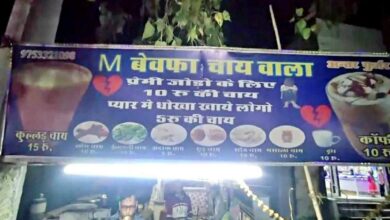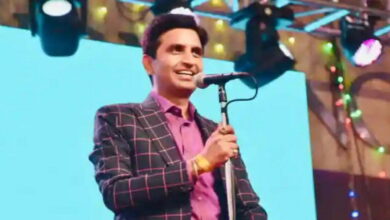Parliament’s condition in Amrit year

The country is celebrating the Amrit Festival of Independence and every effort is being made that at least one session of Parliament is held in the new building in the Amrit year. For this the work of construction of new building is going on in full swing. Even before the completion of the construction work, a huge Ashoka Pillar has been erected at the top of the new building after worshiping at an auspicious time. It is possible that the winter session of Parliament will be held in the new building. During the Corona epidemic, many important questions were raised regarding the need for a new Parliament building and the expenditure on its construction. The questions were justified, yet it can be considered justified by the argument that the government has moved out of the Parliament building built by the British and built it in the Parliament House built in independent India with the intention of celebrating the nectar year. As the Prime Minister himself said, it will be a symbol of a self-reliant and self-confident India. Still the question is, will India leave the spirit of parliamentary politics borrowed from the British model along with leaving the building of Parliament built by the British?
The parliamentary system in India was adopted on the Westminster model of Britain, in which the President, the Rajya Sabha and the Lok Sabha together form the Parliament. The principle of separation of powers was adopted in the constitution, in which the legislature i.e. parliament and legislatures were entrusted with the responsibility of making laws. At the same time, the constitution laid down a process of law making, which should have been strengthened over time through constitutional principles and democratic traditions. But sadly, the law making process in India got worse instead of better with time. The executive came to dominate the legislature and the task of the parliament was only to approve the laws made by the government. Think how surprising it is that Parliament on its part can neither state the need for a law nor initiate the process of making a law. One day a week during the session is to bring the private member bill. Every week on Friday, any MP can present a bill considering the need of the country and society. It is also unfortunate that no matter how good and necessary the bill may be, till date the Indian Parliament has probably not approved any private member bill.
However, in the nectar year of independence, the last session is going on in the old Parliament before the parliamentary proceedings begin in the new Parliament House. It is the farewell session in the old Parliament House. Thereafter no meeting will be held in this historic Parliament House. Although the first parliamentary elections in India were held in 1952, but before that the meetings of the Constituent Assembly were held in this Parliament House. If you compare the debates in the Constituent Assemblies to the ongoing farewell session, then it will be surprising and sad that from where India’s parliamentary system started and where it has reached! In the Constituent Assembly, there were long debates about each article of the constitution and its annexes and sub-contracts. Some politicians who came out of the freedom struggle got involved in the debates on the basis of their scholarship and some only on the basis of their experience and ground understanding and prepared an excellent constitution and parliamentary system of governance.
The tradition of debate and dialogue with which this parliamentary democratic system began is no longer there today. Today the tradition of dialogue and debate in Parliament has become extinct. There is no debate before making any law. Even the specifics of the law are not taken into consideration, the Supreme Court has also said. Government officials draft the law, which gets the approval of the Parliament. Only idols are being installed in the ruling party, whose job it is to raise their hands in favor of every good and bad bill of the government. Barring a few exceptions, there is no precedent in independent India that a member of the ruling party has opposed a bill brought by the government. There is such a system of whip in the Parliament that no MP can vote of his own free will. The MP of the government side is not to speak and the MP of the opposition is not being allowed to speak. He is being silenced by showing the power of the government’s thumping majority.
So, on the whole, the Parliament of the country has come in a worse condition with the coming of Amrit Varsh. Parliament is running on the agenda of the government. Parliamentary committees have been deactivated. Bills are not being sent to parliamentary committees for consideration. For the last several years, no Joint Parliamentary Committee has been formed and no Joint Select Committee has been formed. The most important committee of the Parliament is the Public Accounts Committee, which considers the report of the Comptroller and Auditor General of the country i.e. CAG, but now the number of CAG reports is already one fourth. Considering them also, the MPs of the ruling party, on the basis of their majority, decide in favor of the government or stop the report of the committee. Bills are coming up minutes or hours before they are introduced and they are being passed in minutes. Legislators who have an impact on the wider population of the country are also being presented without deliberation. A new tradition of expelling or suspending the opposition from the house through marshals to pass controversial bills has started.
Words symbolizing resistance in Parliament are being made unparliamentary, then a ban is being imposed on holding demonstrations in the Parliament premises. In the Monsoon Session of Parliament, suspended MPs from both the houses sat on dharna in the Parliament premises for 50 hours, but from the heads of both the houses to the Minister of Parliamentary Affairs of the government, they did not feel the need to talk to them. He was completely ignored. In the Parliament session of Amrit year, it was also seen that the entire ruling party was creating a ruckus on the demand of the resignation of a leader of the opposition. Union ministers were screaming in both the houses and demanding the resignation of the opposition party president. It was also a wonderful sight. Think, when there will be no debate in parliament, no bill will be discussed, bills will not be sent to parliamentary committees, no opposition should be heard, rather they will be suspended for protesting, words will be controlled and picketing- If the demonstrations are stopped, then whatever fancy building the Parliament may go in, it will remain without a soul!






